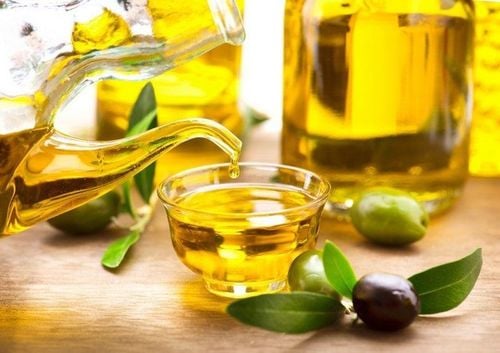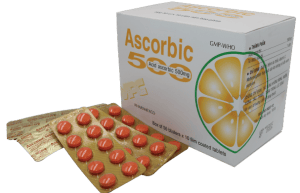This is an automatically translated article.
Geranium essential oil has been used to treat many health problems for centuries. Some scientific data indicates that conditions such as fatigue, depression, infections and pain are improved with geranium essential oil. Some other effects of geranium essential oil include antibacterial, antioxidant, and anti-inflammatory capabilities.
1. What is geranium essential oil?
Geranium has the scientific name Pelargonium Tombolens, this is a plant native to South Africa. Geranium essential oil is produced by distilling the leaves of this plant. According to folklore, it has been widely used for various health conditions.
Geraniums are grown in many regions, including Europe and Asia. There are many varieties and varieties of geraniums with a fresh fragrance. Each has different scents, but are generally similar in composition, benefits, and usage.
The most widespread application of geranium essential oil is as an ingredient in perfumery and cosmetics. In addition, with its pleasant scent, geranium essential oil is also used to treat a number of health conditions. In aromatherapy, essential oils are inhaled in a diffuser, or diluted with a carrier oil and applied to the skin to soothe the skin.
The benefits of geranium essential oil have been demonstrated in several studies on both humans and animals. In addition, there is anecdotal evidence of its benefits. Geranium essential oil is said to have antioxidant, antibacterial, and anti-inflammatory properties.
2. What is the effect of geranium essential oil?
Geranium essential oil has been well researched for some but not all effects. Users should make sure to check with their doctor before use and do not substitute geranium essential oil for another medication or treatment prescribed by your doctor.
Geranium oil can be beneficial for the following conditions:
2.1. Acne, inflammatory acne and inflammatory skin conditions
A 2017 review of studies on geranium essential oil indicates that its antibacterial, antimicrobial, and antiseptic properties help reduce acne, skin irritation, and skin infections when applied topically.
One study shows that geranium essential oil shows promise as a potential anti-inflammatory drug with few side effects.
2.2. Edema
An animal study has shown that the anti-inflammatory properties of geranium oil can make it beneficial for swollen feet and legs.
Folk experience shows that bathing with water mixed with geranium essential oil can be a good way to treat skin edema. However, more studies are needed to investigate the effects of geranium essential oil on edema.
2.3. Inflammation of the nasal vestibule
Nasal vestibulitis is a very uncomfortable disease that may be related to cancer treatment with drugs. One small observational study found that geranium essential oil could ease nasal symptoms caused by this condition, such as bleeding, scabs, pain, dryness, and sores.
In the study, geranium essential oil was mixed with sesame oil and used as a nasal spray in women undergoing chemotherapy for breast cancer.

Giải đáp tinh dầu phong lữ có tác dụng gì?
2.4. Infection
Many studies conclude that geranium essential oil has the ability to fight infections caused by bacterial agents. Geranium essential oil has antibacterial and antimicrobial properties.
In one study, geranium essential oil was shown to be as effective as the antibiotic amoxicillin and effective against strains of bacteria, such as Staphylococcus aureus. The same study found it to be ineffective against Listeria monocytogenes, another strain of bacteria.
2.5. Neurodegenerative disease
Neurodegenerative diseases such as Alzheimer's disease, multiple sclerosis, Parkinson's disease, and amyotrophic lateral sclerosis (ALS) are often caused by inflammation in nerve cell tissues. One study found that high concentrations of citronellol, a component of geranium essential oil, inhibited nitric oxide production, reducing inflammation and cell death in the brain. In addition, geranium essential oil is considered to be beneficial for patients suffering from neurodegenerative diseases including neuritis.
2.6. Perimenopause and menopause
One study found that aromatherapy with geranium essential oil was beneficial in stimulating estrogen secretion. The researchers hypothesized that geranium essential oil might improve symptoms in women with decreased estrogen and health-related symptoms caused by menopause and perimenopause.
2.7. Stress, anxiety and depression
Aromatherapy is becoming more and more popular, even in hospital settings. A randomized clinical trial of women in labor found for the first time that geranium essential oil, when inhaled, has a calming effect and can reduce anxiety associated with early labor.
A study in rats analyzed the calming, antidepressant effects of Reunion geranium (Pelargonium roseum willd) essential oil line and found that it was effective for reducing stress.
2.8. Shingles
Shingles often leads to postherpetic neuralgia, a very painful condition that affects the nerve fibers and skin that run along the nerve. One study found that applying geranium essential oil topically significantly reduced nerve pain after a few minutes. These effects are temporary and need to be reapplied if needed.
2.9. Allergy
According to a preliminary study, the citronellol content of geranium essential oil makes it potentially effective in reducing allergic reactions. However, more research is needed before definitive conclusions can be made.
According to folk experience, applying geranium essential oil directly to the skin can relieve itching caused by an allergic reaction. This happens because of the anti-inflammatory activity of this essential oil.
2.10. Wound care
Experience shows that geranium essential oil can be beneficial in stopping minor wounds from bleeding. It may possess this effect by speeding up blood clotting and causing blood vessels to constrict. Besides, its antibacterial and antiseptic properties are also beneficial for healing.

Tinh dầu phong lữ có thể có lợi trong việc ngăn các vết thương nhỏ chảy máu
2.11. Diabetes
For a long time, in the Tunisian region, geranium essential oil has been used as an empiric treatment to lower blood sugar. One animal study showed that taking geranium essential oil daily significantly reduced sugar levels in rats.
Researchers believe geranium essential oil may also have a blood sugar-lowering effect in people with diabetes, but emphasize that more research is needed before it can actually be used to treat the condition. .
3. Some ways to use geranium essential oil
Geranium essential oil should be diluted with some other oil, such as sesame oil, before using it topically on the skin. You can use geranium essential oil as a spot treatment for acne or itchy skin or as a massage oil. However, it should be noted that some oils can cause allergic reactions when applied to the skin. Therefore, before using, test by applying a little essential oil on a small area to make sure it does not cause a reaction.
When diluting geranium essential oil with a carrier oil, it is important to follow dilution guidelines. For adults, start by mixing 15 drops of essential oil per 6 teaspoons of carrier oil. The equivalent dilution is about 2.5 percent. For children, 3 to 6 drops of essential oil per 6 teaspoons of carrier oil is a safe recipe.
As an aromatherapy, you can dab geranium oil on a tissue or fabric without worrying about staining. You can also put it in a diffuser, to spread the fragrance to a large space. There are also personal-use diffusers, such as aroma sticks that you can fill with essential oils and breathe on the go. In addition, you need to note, never swallow geranium essential oil.
4. Side effects of geranium essential oil
When used correctly, geranium essential oil is considered safe for most people to use. A skin rash or burning may be one of the side effects of its use. The basic rule of thumb when using essential oils is to never apply them directly to the skin before being diluted.
Sometimes a small amount of geranium oil is added to baked goods and you can eat a small amount. The harmful effects of ingesting large amounts of geranium oil are not known, but geranium essential oil is not recommended.
5. How to make geranium essential oil at home
If you have free time, you can make your own geranium essential oil at home by following these steps:
Choose to cut about 12 geranium leaves. Fill the small glass jar halfway with olive or sesame oil, just enough to cover the leaves. Cover the jar tightly and let it dry in the sun for a week. Strain the oil with a cheesecloth into another glass jar. At this point, add fresh geranium leaves to the oil bottle. Seal the jar and keep it on a sunny windowsill for a week. Repeat these steps every week for the next three weeks. The total time to get geranium essential oil at home is about 5 weeks. Pour essential oils into a resealable jar. Accordingly, you should store geranium essential oil in a cool, dry place. Geranium essential oil made this way can be used for up to a year.
Follow Vinmec International General Hospital website to get more health, nutrition and beauty information to protect the health of yourself and your loved ones in your family.
Please dial HOTLINE for more information or register for an appointment HERE. Download MyVinmec app to make appointments faster and to manage your bookings easily.













